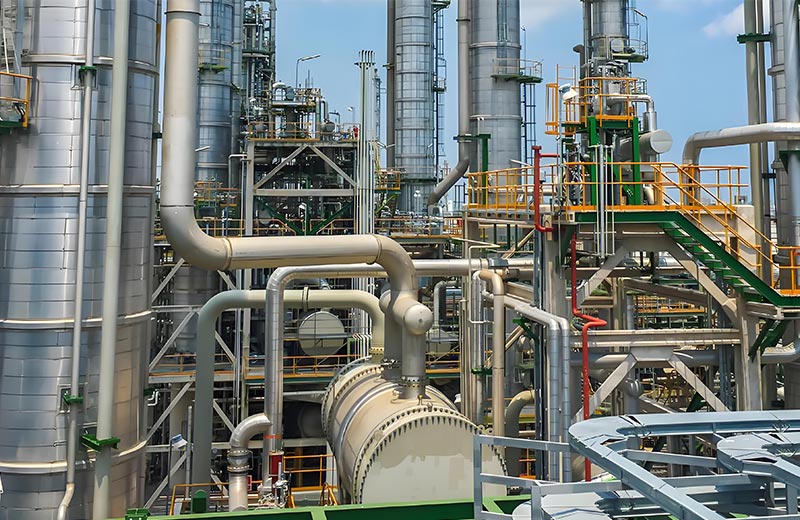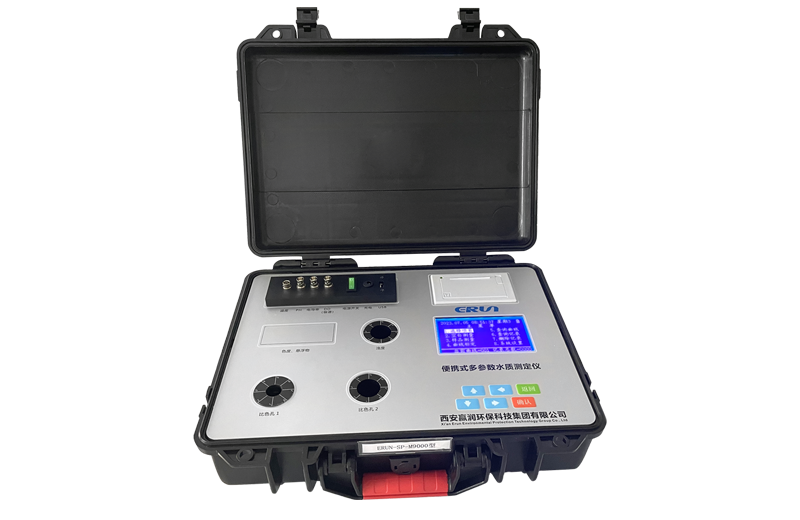Industrial boiler water quality testing is a key measure to ensure the safety and efficiency of boiler operation.Through regular testing of water quality indicators, timely detection and treatment of water quality problems can ensure the normal operation of the boiler, prolong the service life, reduce energy consumption and maintenance costs.Therefore, all industrial enterprises should attach great importance to boiler water quality testing, strengthen water quality management, and ensure that the boiler water quality meets the relevant standards and norms.

Boiler water quality directly affects the heat transfer efficiency and service life of the boiler.If the water quality is poor, the boiler heating surface is prone to scale formation, which not only reduces the boiler's thermal conductivity and increases energy consumption, but also may lead to overheating, deformation or even tube bursting of the boiler's heating surface.In addition, poor water quality will accelerate the corrosion of boiler metal parts, shorten the service life of the boiler, and even cause safety accidents.Therefore, regular testing of boiler water quality to ensure that the water quality meets the relevant standards is a necessary means to ensure the safety and efficiency of boiler operation.
Industrial boiler water quality testing mainly includes the following indicators:
Hardness: Hardness is the total content of calcium and magnesium ions in water. Excessive hardness can lead to boiler scaling and affect heat transfer efficiency. When testing, EDTA titration is usually used to determine the hardness value by observing the color change of the water sample.
Alkalinity: Alkalinity is the amount of material in water that can accept hydrogen ions. Proper alkalinity can neutralize acids in the water and prevent boiler corrosion; however, too much alkalinity can also trigger alkaline corrosion. Alkalinity is usually measured by titrating a standard solution of sulfuric acid using phenolphthalein and methyl orange indicators.
pH: pH is an important indicator of the acidity or alkalinity of a solution. Boiler water quality usually needs to have some alkaline characteristics to avoid corrosion and fouling. To test pH, use a pH meter or test paper to ensure that the water pH is within a reasonable range.
Dissolved oxygen: Dissolved oxygen is the content of oxygen in water. Oxygen is one of the main factors in the boiler metal corrosion, so it is necessary to control the content of dissolved oxygen. Usually by adding deoxidizer or vacuum deoxidizer and other methods to reduce the dissolved oxygen content.
Turbidity: Turbidity is the amount of suspended solids in water. Excessive turbidity affects the heat transfer efficiency of the boiler and may clog the pipes.
ERUN-SP7-11 portable boiler water testing instrument produced by Erun Environmental Protection is a high-tech product designed for boiler water quality monitoring, and its excellent performance and convenient operation make it a trusted choice for many industrial enterprises.This instrument combines high accuracy, multi-parameter and portability, and is built to meet the demanding requirements of boiler water quality monitoring.
The ERUN-SP7-11 portable boiler water testing instrument is widely used in a variety of industries, including but not limited to:
Power industry: Thermal power plants and other enterprises that need to use a large number of boilers use ERUN-SP7-11 to monitor boiler water quality on a regular basis to ensure steam quality and improve power generation efficiency.
Chemical industry: Boiler as an important heating equipment, its water quality condition directly affects product quality and production safety.
Textile printing and dyeing industry: high requirements for water quality, boiler water quality directly affects the dyeing effect and product quality.
Food and pharmaceutical industry: Strict requirements for vapor purity.

ERUN-SP7-11 portable boiler water testing instrument shows strong competitiveness in the field of boiler water quality monitoring with its advantages of high precision, multi-parameter, portability and intelligent operation.It can not only meet the needs of testing under various complex working conditions, but also provide comprehensive water quality information to help users find and deal with water quality problems in a timely manner, to ensure the safe operation of the boiler and efficient work.